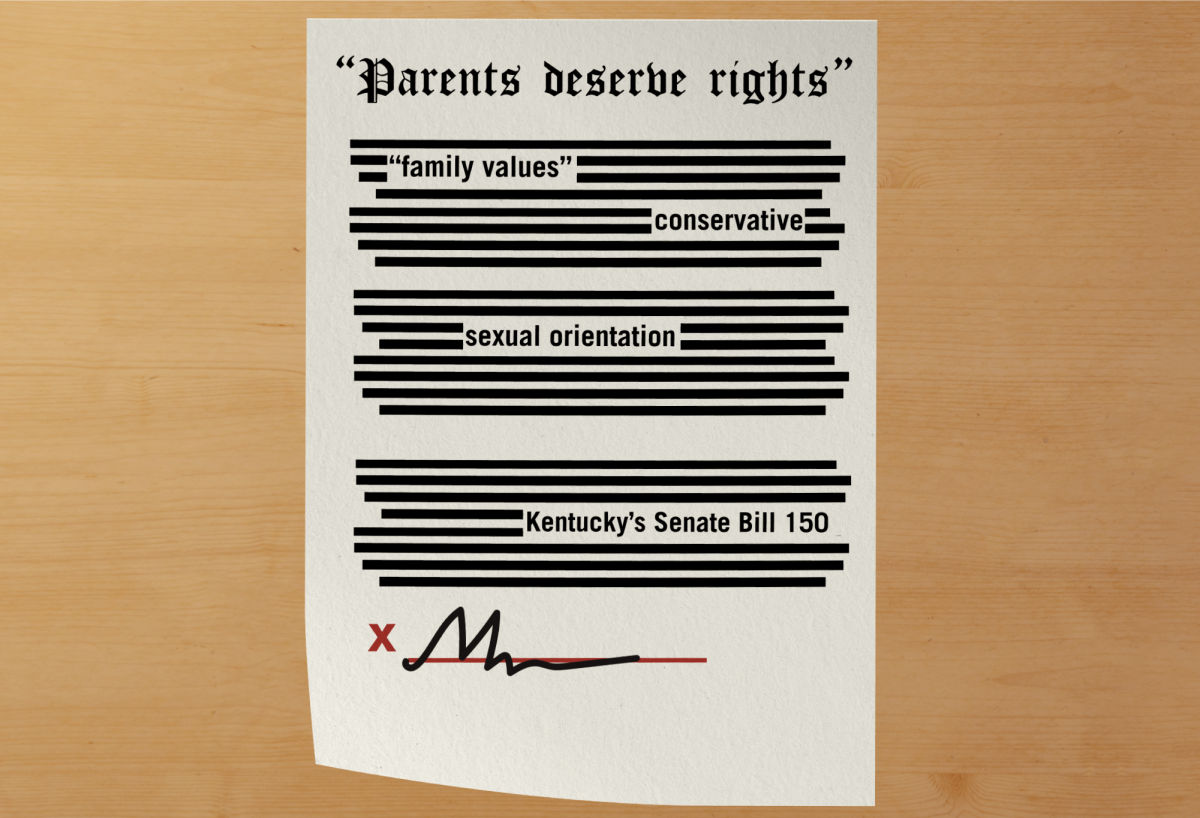Anyone following conservative politics will have heard it by now: “Parents deserve rights.”
This idea has served as the ethos behind a movement to restrict discussions of gender diversity and sexual orientation in schools, as well as require school authorities to report students to their parents should they attempt to undergo a social gender transition at school.
Kentucky’s Senate Bill 150, which was passed by the legislature and is currently facing a lawsuit, does exactly as this movement demands and more.
The claims made by proponents of parents’ rights are almost apocalyptic in tone, suggesting that children will be manipulated into believing radical ideas and do irreversible damage to their bodies unless their parents are empowered to protect them.
But what does this movement really seek underneath the loaded language?
While the phrase “parental rights” may be new in politics, the principles behind it are not. The roots of this ideal can be traced to the “family values” of fundamentalist Christian ministers like Jerry Falwell Sr., who organized the Moral Majority as a reaction to the social progress of the mid-20th century.
The most notable ideological ancestor of the parental rights movement is Anita Bryant, a professional singer and orange juice spokeswoman who took up the cause of opposing gay rights in the 1970s.
She slandered gay rights activists as perverts and predators who would prey upon children, eventually being humiliated by a gay man who hit her with a pie on live television.
The main arguments of advocates for parents’ rights reflect Bryant’s logic that children are safest in the care of their parents, therefore parents should have absolute authority to control their children’s lives.
Notably, parents who affirm their children’s identities and enable their gender transitions are carved out as exceptions to this idea and branded as abusers whose children should be removed from their care by those calling for expanding parental rights.
The idea that the nuclear family guided by traditional values is a safe haven from abuse is contradicted by research on such matters. According to Statista.com, hundreds of thousands of reports of child abuse and neglect in 2021 identified one or both parents as the perpetrator, making such cases far more common than alleged abuse by strangers.
Furthermore, there is a wealth of research that has found that gender affirming care — which encompasses far more than surgeries — is beneficial to transgender individuals, starkly outweighing the evidence to the contrary.
For trans children in particular, gender affirming care reduces depression and suicidality, and the parental rights movement has never substantially contested this fact when advocating for laws banning such care like Kentucky’s SB 150.
In every context where groups of parents seek to expand their power over their children, there is a consistent through-line in the arguments of the campaigns: children are at risk of being indoctrinated.
This is a major point of anti-trans reactionaries who lay the blame for children exploring their gender upon teachers who talk about trans people in class, trans people who exist visibly and, implicitly or explicitly, a sinister organization working behind the scenes to destroy “traditional values.”
It should go without saying that the belief in a grand conspiracy to brainwash children into transitioning is ludicrous. Like all conspiracy theories, it relies on evidence that is circumstantial at best and fabricated at worst and is structured so that all evidence that disproves it becomes part of the conspiracy.
Despite the logical weakness, the specter of an external influence responsible for children deviating from their parents’ expectations is tempting to conservatives frustrated by the perceived betrayal when their children are queer. Indoctrination is a more satisfying answer than children forming their own identities independently of their parents’ values.
So if the concerns of parental rights activists about safety and indoctrination do not hold up under scrutiny, what is the goal of the movement?
The treatment of children as the property of their parents.
Those who insist that they are entitled, as parents, to raise their children as they see fit without any outside influence of which they do not approve ultimately do not believe that their children have the same right to self-determination as themselves.
They are not asking for the power to protect their children but instead to be able to treat them as extensions of their own persons and exert absolute control over their development.
Children are people.
They may not have the experience of adults, but they have thoughts and emotions of their own which ought to be respected. The denial of personal autonomy to any thinking, breathing human being is atrocious, and just because children must rely on the support of others does not mean they forfeit the right to have their own identities and make their own choices.
































































































































































